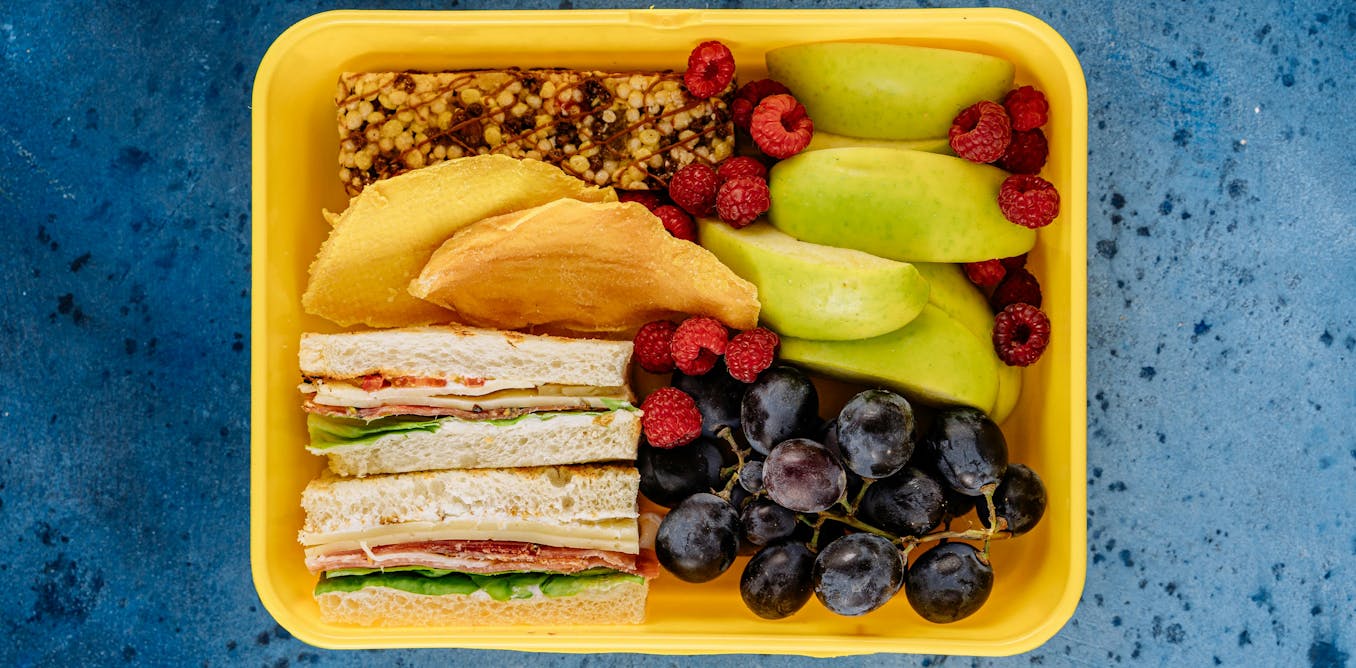It’s the end of January – have you stuck with your new year resolutions? If so, you’re in the minority. Humans are generally pretty poor at sustaining big behavioural changes all in one go, which is why, according to some estimates, 80% of people fail to keep their resolutions by February. We are much better at accomplishing small changes and building them up over time. “Couch to 5k” programmes are a good example of this, helping people build up their running fitness one step at a time.
This year, you may have seen “in and out” lists all over TikTok. Instead of a massive life overhaul, young people are placing small behaviour changes on the same level with trying new foods or fashion trends. Some are also urging fun or low-stakes resolutions, like trying more pasta shapes.
New year resolutions are not always accomplished, but it is still good to aim for them. Setting goals can enhance your life by focusing your attention on a specific purpose, boosting your motivation and helping you develop skills. Pursuing and achieving goals is linked to wellbeing and life satisfaction.
This article is part of Quarter Life, a series about issues affecting those of us in our twenties and thirties. From the challenges of beginning a career and taking care of our mental health, to the excitement of starting a family, adopting a pet or just making friends as an adult. The articles in this series explore the questions and bring answers as we navigate this turbulent period of life.
You may be interested in:
Why a social media detox may not be as good for you as you think – new research
Four ways men and women can improve their health before trying to conceive
Expert advice to help young people keep their new year resolutions
Engaging in fun and low-stakes goals can also be beneficial. Creating more opportunities for playfulness and laughter reduces stress and can make activities more enjoyable in the moment. The low-stakes goal of trying new pasta shapes might actually help you achieve bigger goals of cooking from scratch and eating healthier meals.
Picking the right goal
When you fail to meet a goal, it is tempting to think there is something wrong with you – you weren’t motivated, disciplined or dedicated enough. But experts suggest that the problem is more likely the goal selection: picking the wrong goal, or setting too many big goals at once.
Research has identified two main goal types: performance goals and learning goals. Performance goals are usually short term and targeted on a specific outcome, like acing a presentation or getting a promotion. Learning goals encourage long term skills development and self-improvement that lead to better outcomes over time, such as learning a language. Combining both types of goals increases the chances of achievement and personal growth.
Reaching goals requires an investment of personal resources: time, money, skills, physical energy and social support. You have to decide where to direct this energy, focusing and prioritising one or two big goals, or adopting a handful of small goals that do not require a big investment.
Tips to help you reach your goals
1. Be SMART
Writing out a plan of action based on SMART goal theory has been shown to help people reach their goals. SMART stands for specific, measurable, attainable, realistic and time-bound. For example: “I will walk 10,000 steps five days a week by walking on my lunch break and taking the dogs for a walk in the evening.” Another example could be, “I will write down three things I am grateful for in my notebook before I go to sleep every night”.
A structured approach can help you focus your attention on one goal at a time, while making you aware of the effort required to achieve your goal.
2. Stay positive
Set an “approaching” rather than “avoiding” goal: “I will eat an orange as my mid-afternoon snack at work” rather than “I will not snack on junk food”.
Framing goals more positively increases positive emotions and motivation – trying to avoid things is not so motivating.

ViDI Studio/Shutterstock
3. Prepare to fail
Creating a coping plan for when you face a roadblock is an important part of reaching goals. Instead of giving up at the first hurdle, know that it’s okay to struggle. It is also okay to mess up, miss or fail at your goals, because you are human.
The important thing here is not to give up and certainly not to beat yourself up. Be kind to yourself, talk to yourself as a supportive friend or coach would do. You may have to go back to the drawing board and refine your goal, make it more realistic or add in some immediate rewards to help you stay on track.
4. Celebrate
Goal setting is not only about the rewards you want to enjoy, but also the costs you are willing to pay. James Clear, author of Atomic Habits, suggests that you should not fall into the trap of postponing happiness until the next milestone, but rather set goals you enjoy working towards.
And you don’t have to run a marathon, have a baby or get a promotion to celebrate. Celebrating small wins and unconventional milestones – such as low-stakes new year resolutions – can improve happiness and wellbeing.

The post “Setting low-stakes challenges can help you reach your bigger goals in 2024” by Lowri Dowthwaite-Walsh, Senior Lecturer in Psychological Interventions, University of Central Lancashire was published on 01/25/2024 by theconversation.com






































